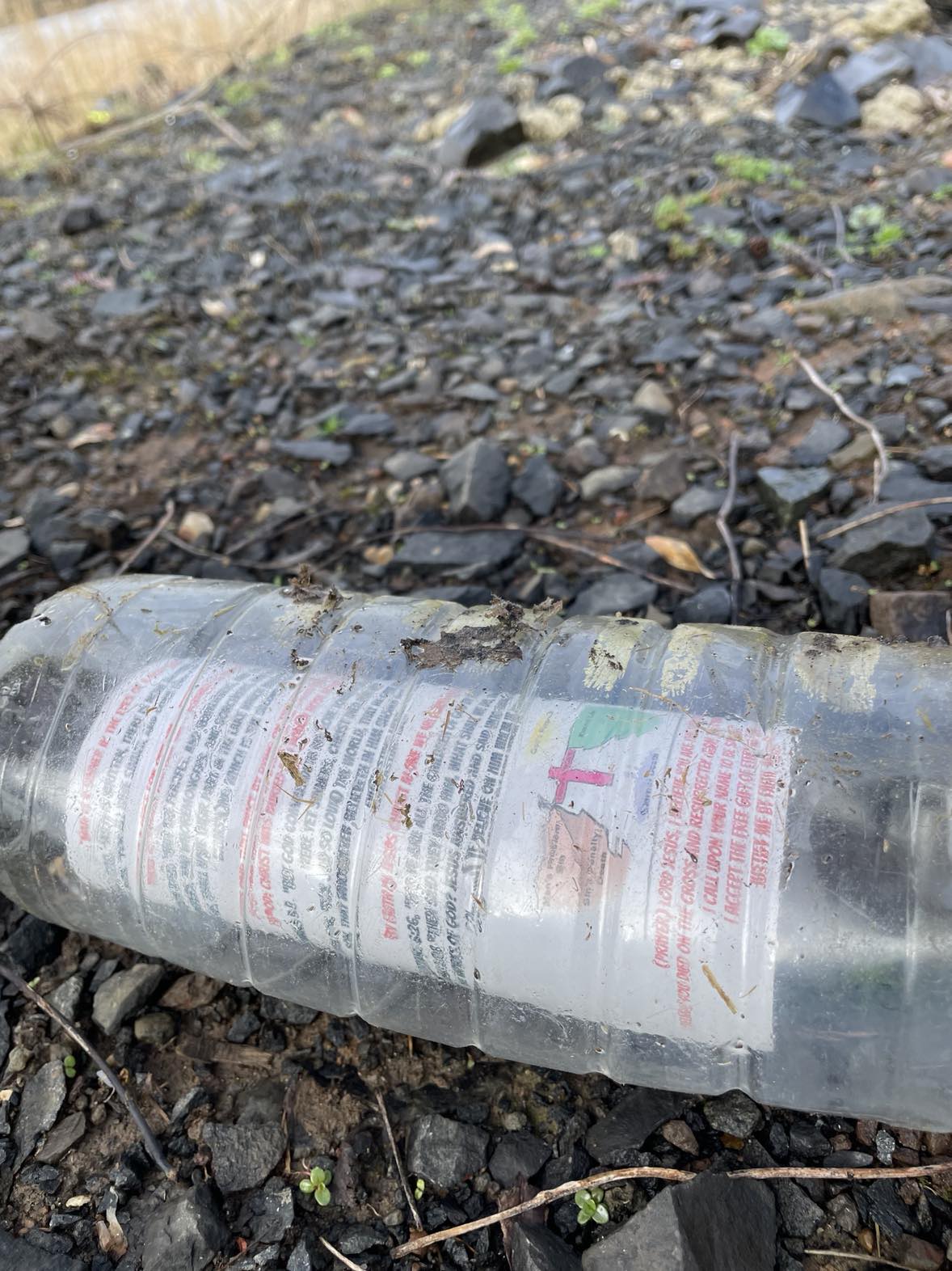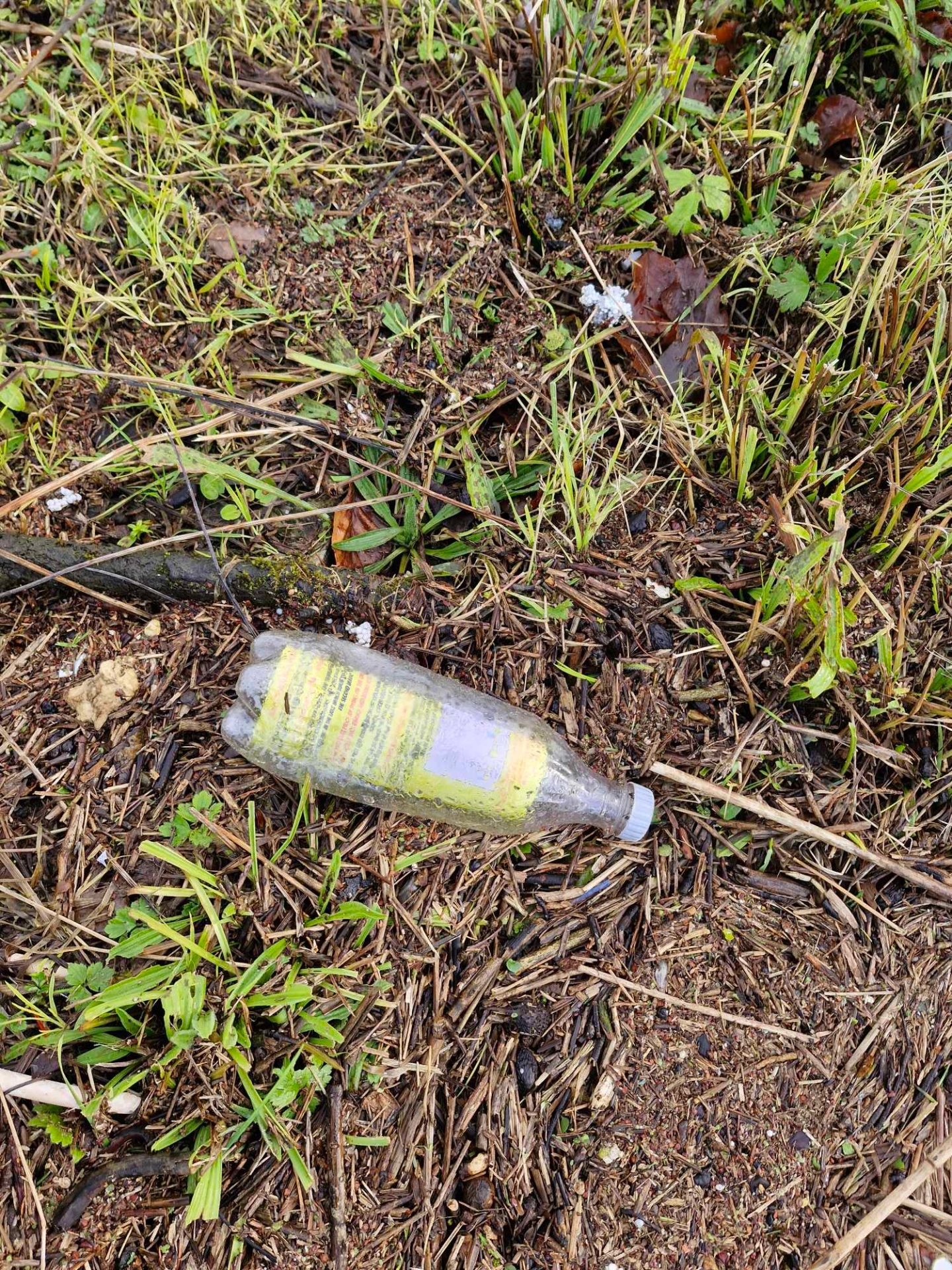
Bottles with bible verses found in River Bann
Countless plastic bottles containing bible verses have been found in the River Bann near Coleraine, prompting concerns for the environment.
The problem only came to light in recent weeks however it is understood it has been ongoing for some time.
Due to the amount of plastic bottles recovered from the river between Coleraine and Castlerock in recent years,
environmentalists and government agencies suspect they are being dumped into the river near Coleraine.
Gladys Ganiel, Professor in the Sociology of Religion at Queen’s University Belfast, was not surprised when the messages were found, she said.
“I wasn’t entirely surprised because there is within Northern Ireland an evangelical subculture that emphasises the power of the word of God. The idea is that if you get the Word of God out there in the public domain, people will read it, see it or hear it and their lives will be changed, transformed, they'll be born again or converted or whatever language you want to use.
“To me, the idea of putting bible verses in the bottles is similar to what you will notice driving around the countryside of Northern Ireland, the handmade signs that say, 'you must be born again', or 'repent for the kingdom of heaven is at hand', or bible verses. So this idea that the word has power and putting it out there is a powerful thing."
At this time it is not certain who is responsible for placing the bible verses in the bottles as the messages have no sign of identification that identifies a person or organisation responsible for it.

Sea2it is a not-for-profit Community Interest Company to help conserve the marine and freshwater environment of the island of Ireland.
This volunteer-based organisation, officially created in 2020 in Coleraine, has been trying to clean up the freshwaters around the area.
“They just seem to be standard messages that you will find quite frequently in Northern Ireland,” said Andrew Bratton, volunteer director of Sea2it.
“Sometimes you'll see these sorts of messages on the back of a boss or a lampost.”
However, behind the religious element, there is a second forgotten problem at hand.
Andrew says that the bible verses found in the bottle are hiding the major problem behind this practice. Indeed, without the religious element, the plastic bottle released into the river constitutes a major environmental problem that causes damage to the environment.
Sea2it has found thousands of bottles over the years and is asking anybody responsible for this to stop.
In 2023, Sea2it found a total of 600 to 670 bottles with a message inside. Last Saturday, February 3, Sea2it with the sea swimming woman group of Castlerock village found another 55 bottles.
“Some of the bottles are dated well over 10 years ago because you can read the ‘best before’ date on the bottle to allow you to kind of tell what period they are from.
“Some of the messages are definitely at least a decade old.
“We haven't found them all. Some bottles are very fresh, they’ve been done in recent weeks or months.
“That's been happening for a very long time,” said Andrew.
“I mean plastic bottles break down over time. So one bottle suddenly becomes ten plastic pieces and the plastics break down to the point where they become microplastics. Then it's impossible to recover from the riverbank.”
Andrew said that Sea2it have been alerting the public on the amount of plastic pollution for years but it did not reach the media until the religious element was part of the problem.
“It's so disappointing, the primary issue is litter, rubbish in the river. Religion is not the right message at all, that's just one small part. To be honest, that's only the tip of the iceberg.
“It does not matter if it’s religion or not.
“There's a much more important message here and that is that we need to protect our rivers and coastline,” added Andrew.
On average, a plastic bottle takes 450 years to decompose according to Dr Heidi Acampora, researcher in Seabird Ecology, Marine Biology and Zoology at the Galway-Mayo Institute of Technology.
It then goes into nature putting at risk citizens, plants and wildlife in the zone. Then the sea and river currents might bring the microplastic and other plastics new at sea affecting marine wildlife for decades.
A 2023, a research paper from the Physic of Fluids journals shows that humans might inhale around 16.2 bits of microplastic per hour equivalent to a credit card.
Dr Heidi Acampora said that “anything that goes to a river will make its way to the sea”.
The only way to avoid the bottles from reaching the sea is to organise river cleanups, she said.
“If [the bottles] are in the water for a while [...] they start getting colonised by other organisms, and then that could make them start sinking because then they will get heavier. “Then they might sink to the bottom of the sea or of a river. In that case, with weathering, they will eventually break down into microplastics but it might take years and years.
However, if the bottles happen to reach the sea the process of breaking down is faster due to weathering, wave actions and UV, said Heidi Acampora.
“[At sea] it continues to get colonised and it travels with the currents. Then, it starts breaking down into smaller bits of plastics, which when they're under five millimetres are microplastics.”
“Once they become microplastics, it's very hard to remove that from the environment and then they become much more accessible to the lower organisms at the bottom of the food chain, like the zooplankton. Then the bigger animals will also ingest that and then all of a sudden, it's also in our food because it gets to the fish we eat.”

East Derry MLA Claire Sugden has appealed to those behind the River Bann dumping of Bible verses inside plastic bottles to stop, due to its environmental impact.
“Whatever the reason behind it, the dumping of these plastic bottles into the river is becoming a significant environmental risk and leaving it looking dirty and polluted,” Ms Sugden said.
“There are far cleaner and less damaging ways to express your religious beliefs. The time and effort taken to make and then dump these bottles could also be much better spent – for instance through volunteering with one of the many good community projects run by churches and religious groups.
“Plastics in our waterways and seas is a real problem for wildlife, the environment and for our own health – both locally and globally.
“I would urge whoever is behind this to stop and to channel their energies through more productive forms of religious work.”
Subscribe or register today to discover more from DonegalLive.ie
Buy the e-paper of the Donegal Democrat, Donegal People's Press, Donegal Post and Inish Times here for instant access to Donegal's premier news titles.
Keep up with the latest news from Donegal with our daily newsletter featuring the most important stories of the day delivered to your inbox every evening at 5pm.